
THE VOICE OF INTERNATIONAL LITHUANIA
|
VilNews has its own Google archive! Type a word in the above search box to find any article.
You can also follow us on Facebook. We have two different pages. Click to open and join.
|
Featured black
- Posted by - (11) Comment
 |
IN MEMORY OF JEWISH KAUNAS |
Chiune Sugihara:
The Japanese diplomat/
spy who became a hero of the Holocaust
By Boris Bakunas, PhD
In the Year of Shame 1940, while the bulk of the German military machine was consolidating its grip on Poland, 110 French and British divisions sat idly on the Western Front, facing a token German force a fraction its size.
In the Year of Shame 1940, the People’s Commissariat for Internal Affairs, the dreaded NKVD, massacred 22,000 captured members of the Polish Officer Corps, turning the Katyn Forest into a vast mass grave.
In that same Year of Shame 1940, Chiune Sugihara, a Japanese diplomat and spy stationed in Kaunas, Lithuania – along with his wife Yukiko – made a joint decision in defiance of direct orders from their government, and together they lit a beacon of hope for thousands of Polish and Lithuanian Jews. From 19 July to 28 August, 1940, the two-storey, white stucco building on 30 Vaizgantas Street that housed the Japanese Consulate, became the moral capital of the world.
Chiune and Yukiko Sugihara with their two children had arrived in Kaunas from Helsinki in 1939 not long after Nazi and Soviet troops sliced Poland into two zones of terror. Chiune’s ostensible mission was to serve as the Japanese Vice-Consul in Kaunas. His real assignment was to gather intelligence on the strength of the Soviet military in the West.
But a chance encounter at a delicatessen with an eleven-year-old Lithuanian-Jewish boy named Solly Ganor intervened, transforming the suave foreign-service officer renowned in diplomatic circles for throwing lavish parties into a hero of the Holocaust.

Jewish
refugees at the gate of the Japanese Consulate in Kaunas, July 1940.
Thousands
of Jews lined up here, hoping to receive transit visas allowing
them
to escape to the Far East and to America or Palestine.
“Now is the time to leave.”
Years later, an elderly, but healthy Solly Ganor recalled that fateful encounter.
As Solly, his hair flaked with snow, stepped through the door of his Aunt Anushka’s delicatessen in Kaunas, he saw her chatting amiably with “an elegantly-dressed man with strange, slanting eyes.”
“Ah, my dear nephew has come for his Hanukah money,” Aunt Anushka exclaimed. “Come here and meet his Excellency, the Consul of Japan, Mr. Sugihara.”
“How do you do, Sir?” Solly said.
The man shook Solly’s hand and smiled. Solly remembers taking an immediate liking to him. “There was humor and kindness in those strange eyes,” he later recalled.
Aunt Aunushka said to Solly, “You want to go to the movies, and you need a litas, right?” Solly nodded eagerly.
But before Aunt Anushka could get to the cash register, Mr. Sugihara reached into his pocket and handed Solly a shiny coin. “Since this is Hanukah, consider me your uncle.”
Solly hesitated. Then he impulsively blurted out an invitation. “Since you are my uncle, then you should come Saturday to our Hanukah party. The whole family will be there.”
The arrangements made, Solly went off to see a Laurel and Hardy film.
At six, Aunt Anushka arrived with Mr. and Mrs.Sugihara and Yukiko’s sister Setsuko at the Ganors’ apartment. Solly recalled that Mr. Sugihara wore a striped suit. His wife Yukiko, was dressed in an elegant black dress.
The Ganors had lived in Kaunas for generations. Solly’s father Chaim was a successful businessman. Among the many guests were two refugees from Warsaw, Mr. Rosenblatt and his little daughter, Lea.
The family and guests sat down at the long dinner table. Yukiko had never seen such a huge meal. There was even a duck, Japanese-style, which Aunt Anushka had specially prepared.
Mr. and Mrs.Sugihara attentively watched the Hanukkah rituals. Solly noticed that Mr. Sugihara was particularly interested in the story of Judah Maccabee, the leader of a successful Jewish revolt against foreign invaders in the second century B.C.E. He asked many questions about it.
Later, Mr. Sugihara asked Solly about his hobbies. When he learned that stamp collecting was one of them, he invited Solly to the consulate to see some Japanese stamps.
After dinner, Mr. Rosenblatt described his narrow escape from Poland and the things he had witnessed: his wife’s death during the bombings of Warsaw, Jews terrorized by Nazis and anti-Semites, arrested, and shipped off to camps. As he recounted the atrocities, Mr. Rosenblatt started to cry.
“It was painful to hear those horrible stories,” Solly recalled. “But Sugihara listened to every word.”
Later Solly overheard Mr. Rosenblatt pleading with Mr. Sugihara to issue him a visa so he could leave Kaunas. “Even a transit visa will help.”
Mr. Sugihara told Mr. Rosenblatt to come see him.
One day after school, Solly visited the consulate. Mr. Sugihara showed him into his office and pulled out an envelope from his desk drawer containing Japanese stamps. After showing him the stamps, Mr. Sugihara asked Solly a series of questions.
Had Mr. Rosenblatt and his daughter gotten their transit visas yet? How was Solly’s family faring? Solly knew that his father was hesitant about selling the family business. He couldn’t imagine Hitler invading Lithuania with Soviet troops in the country.
Mr. Sugihara’s voice suddenly sounded serious. Would Solly give his father an important message? Solly nodded. Mr. Sugihara spoke very quietly, as if he were telling a secret. “The time to leave is now,” he said.
|
|
|
|
“They all looked so sad.”
On the morning of July 27, 1940, as was his custom, Chiune rose early, ate breakfast, and climbed down the stairs to consular office below. What he saw outside his window caused him to rush back upstairs to show Yukiko.
Instead of the tranquil tree-lined street, she saw a crowd of about two hundred people, many of them dressed in bedraggled clothes.
“There were children, women, and young men,” Yukiko later said. “They were all hanging onto the fence. The young men were trying to climb over the fence. But the security of the consulate was pushing them back.”
Yukiko took several photographs. “They all looked so sad. Some women were looking right at me with great sorrow.”
To calm the throng, Chiune Sugihara agreed to meet with a delegation of five in his office. Zorach Warhaftig, a leader of Poland’s religious Zionists, was selected as head of the group. One by one the delegates described the terrible plight of the Jews. Mr. Warhaftig also told Mr. Sugihara that the Dutch consul had agreed to give Jewish refugees entrance visas for the Dutch Caribbean island of Curacao. But to get there, they would have to travel to Japan first. Would Mr. Sugihara issue transit visas for Japan?
Mr. Sugihara expressed his deep sympathy. However, he could issue only a few visas on his own authority. He told the Jewish delegates that he needed time to think. He asked them to come back the next day.
That night Chiune and Yukiko tossed and turned in a restless half-sleep. In the morning, they saw that the crowd had grown. Entire families were now sleeping on the ground, afraid that they might lose their place in line.
When Sugihara met with the Jewish delegates, the acting Dutch consul, Mr. Jan Zwartendijk, was also present.
Mr. Zwartendijk affirmed that he was willing to do all he could to help. Everybody now looked at Mr. Sugihara. Looking them straight in the eyes, Mr. Sugihara announced that he was willing to cable the Japanese Foreign Ministry for permission to grant transit visas, provided that his wife agreed.
The meeting adjourned. The first spark of hope had been struck. What had begun as a chance meeting between an eleven-year-old boy and a Japanese Consul was fast turning into a conspiracy.

Chiune
Sugihara with his wife Yukiko
“This request is a humanitarian plea.”
That evening Chiune and Yukiko descended the stairs to the consular office, where Chiune began the laborious process of encoding a cable to the Foreign Ministry. Yukiko transcribed the cable in triplicate by hand.
“I request permission to issue visas to hundreds of Jewish people who have come to the consulate here in Kaunas seeking transit visas. They are suffering terribly. As a fellow human being, I cannot refuse their requests. Please permit me to issue visas to them. This request is a humanitarian plea. The refugees’ request for visas should not be denied.”
Two days later, Chiune Sugihara decoded a cable from Japan. His urgent plea had been emphatically denied. The denial ended with the words. “No exceptions. STOP. No further inquiries expected. STOP. K. Tanaka, Foreign Ministry Tokyo.”
Undaunted, Sugihara sent a second request. The crowd of refugees, many with faces ashen from hunger and fatigue, continued to grow.
A second cable from Tokyo arrived. “Permission denied.”
Sugihara tried a third and final time. DENIED!
Wearily he went upstairs to share the bad news with Yukiko. They both knew they faced a grim, and possibly deadly choice.
If Chiune defied the Foreign Ministry’s orders, at the very least, his career would be ruined. At worst, he would be placing his life and the lives of his wife and children in peril. As Yukiko later said, “If we were in Germany, and we did something like that, my husband, myself, my children could all be taken away by the Nazis. I didn’t know what they would do to us. Maybe they’d kill us.”
Chiune looked into Yukiko’s eyes and told her that he had decided to issue visas under his own authority. Did she approve? Yes.
The next day, Chiune Sugihara had his chauffer drive him to the Soviet Embassy where he met with the Soviet consul. Sugihara spoke fluent Russian. After a brief period of negotiation, the Soviet consul agreed to allow the refugees to travel across the Soviet Union via to trans-Siberian railroad to ports along the Pacific coast where they could board ships for Japan, but at five times the standard price.
As the shiny black Buick with the Japanese flag slowly drove past the refugees outside the consulate, all eyes were trying to gauge the look on the diplomat’s face. But they saw no hint of what had transpired. The tension in the crowd grew.
Finally, Mr. Suhigara stepped out of the building and stood in front of the gate. In a calm, authoritative voice, he announced that he would issue a visa to every man, woman, and child. After a moment of stunned silence, the crowd erupted in cries of joy. Families and friends hugged and kissed.
Sugihara interviewed each refugee, asking probing questions in an attempt to find useful details to write on the visas. Each visa had to be written by hand, signed, stamped, and registered in a log containing its number and the name of the person or family who received it.
As
word spread among the Jewish community in Kaunas, the crowd in front of the
consulate mushroomed. To speed up the process Sugihara ordered his staff,
including his German assistant Wolfgang Gudze, to assist him.
“How can I handle a thousand visas?”
Among those who came to the consulate was Moses Zupnik, a yeshiva student who
looked barely out of his teens. His purpose? To obtain 300 visas for the Mir
Yeshiva, a Jewish school for religious education.
Zupnik later recalled: “I came in, and I was all excited. And I saw that he measured me. He was sitting at his desk and he was measuring me from the top to the bottom. Who I am? What I am? I said to him, ‘I am a representative of the Mir Yeshiva, and we want to go to Curacao. We just want to go through Japan.”’
Zupnik fidgeted nervously as he awaited Sugihara’s response. To his amazement, Sugihara agreed to write all 300 visas.
“I still remember when he looked at me, when he said, ‘Alright I’ll give you all the visas.’ I don’t forget these things, because they are still all alive in me. He saw people suffering, and he thought maybe he could help. And he helped.”
When Zupnik returned a few days later to pick up the visas, he found Wolfgang Gudze fraught with panic. “How can I handle a thousand visas?”
Zupnik said, “You know what? I will help you.”
When Sugihara heard about the offer, he said to Gudze, “Let him help you.”
For the next two weeks, Zupnik and Gudze worked side by side assisting Sugihara. During that time, Gudze made a deep impression on Zupnik. “He was a zaddik, a groyse zaddik” (a righteous man), Zupnik said years later.
But others reported that Gudze was a Gestapo agent
Then on 2 August, a cable from the Japanese Foreign Ministry arrived, ordering Sugihara to shut down the consulate immediately. Since the Soviets had forcibly “annexed” Lithuania into the U.S.S.R. in late July, they did not want any consulates in Kaunas. Sugihara fired off a passionate appeal to the Soviet Embassy for a delay. He was told that his request would be placed under consideration.
Sugihara speeded up the visa writing process again. Soon he was working 16 hours a day. By evening his hands ached so fiercely that Yukiko had to massage them before he could fall asleep.
On 10 August. Sugihara saw that the ever-swelling crowd now included the poorest of the poor, late-comers who lacked the connections to hear about the goings-on in the Japanese consulate. “They all seemed very tired and exhausted,” Sugihara wrote. “I did not know whether they had any place to sleep in Kaunas, maybe they just slept in the station or on the street.”
Sugihara told his staff that from now on he would issue visas even to those whose documents were obvious forgeries, even to those with no documents at all.
In mid-August, the long-dreaded reply for an extension from the Soviets arrived. Hands trembling, Sugihara slit the envelope open. Gudze heard him sigh with relief. Inexplicably, the Soviets had agreed to an extension until 28 August.
The unexpected news reinvigorated Chiune. Yukiko offered to help write visas, but he refused, firmly ordering her to stay as far away from the consular office as possible. Perhaps he didn’t trust Gudze. Most likely, he didn’t trust anybody. What he was sure of was that the responsibility for his actions should fall on his shoulders alone.

Former
Japanese consulate in Kaunas.
“Banzai Nippon!”
Then came a final warning from Japan. Close the consulate immediately and
leave. Chiune told Yukiko to start packing, while he, Gudze, and Zupnik
continued writing visas.
On 28 August, their suitcases packed and all documents burnt, the Sugihara family squeezed into the black Buick and drove off.
By this time Chiune Sugihara was worn out.
“He was so exhausted, like a sick person.” Yukiko recalled. “Even though he was ordered to go to Berlin, he said he couldn’t make it to Berlin and suggested we go to a hotel and rest before leaving.”
On the gate, Sugihara had left a note for the refugees. It said that he would be staying at the Metropolis Hotel.
Even before he could settle into his room, Sugihara got an urgent message from the hotel desk. He was needed downstairs. Having read the note on the gate, the refugees had followed him to the hotel. Sugihara wrote more visas. He wrote and he wrote until the family finally had to leave for the station and board the train for Berlin.
The refugees followed.
On the train, Sugihara continued to write visas on plain paper, signing them and flinging them indiscriminately to outstretched hands in the hope that the refugees would fill them in and find a way to outwit the Soviet and Japanese officials on their own.
As the train moved away from the station, Sugihara heard a voice shout, “Banzai Nippon!” Others joined the chorus. “Banzai Nippon! Banzai Nippon!’ These words meant “Long live Japan!” Sugihara had told some of the refugees to say this when they encountered Japanese officials.
Some witnesses reported they heard Sugihara say, “Please forgive me. I cannot write anymore. I wish you the best.”

Chiune
Sugihara memorial in Vilnius.
“I
may have disobeyed my government, but if I didn't I would be disobeying God."
Chaim Ganor never sold his business. He and dozens of other family
members, including Aunt Anushka, were sent to German concentration camps. Only
Chaim, Solly, and Solly’s sister survived.
On May 2, 1945, Solly Ganor lay nearly
frozen under a blanket of snow. A four-man signal unit of the US 522th
artillery battalion was passing by, when one of the soldiers looked back and
said, “Hold it fellow, something strange is lying there in the snow.”
They found a whole group of people in striped clothing. The soldier picked
Solly up. Solly looked into his eyes and saw that they looked strangely
familiar – slanted. The soldier was Corporal Clarence Matsomura. Years later
Solly and Clarence met again in Jerusalem. In 2003, Solly Ganor’s book Light
One Candle: A Survivor’s Tale from Lithuania to Jerusalem was published.

Moses Zupnik, who came to ask Sugihara for 300 visas for the students of the Mir Yeshiva and stayed to help write visas during the two final weeks at the consulate, made it to Japan. The Japanese sent him and the other students to Shanghai, where they stayed until the war ended. Moses went to America and settled in New York City, where he became a rabbi.
Wolfgang Gudze is said to have reluctantly joined the German army. Once, when Moses Zupnik asked Gudze how he could thank him, Gudze replied. “You don’t have to thank me. But the world is a wheel. Today Hitler is on top. Tomorrow he may be down. Don’t forget what I did.” Zupnik never heard from Gudze again.
Although Mr. Rosenblatt and his little daughter Lea obtained their visas, I have not been able to learn if they survived the Holocaust.
Soon after arriving in Berlin, Chiune Sugihara was posted to Prague, where he and his family got a much-needed rest. Even so, he continued writing visas in Prague, and later in Koenigsburg, his last diplomatic post.
After the war, he and his family were detained by the Russians in one internment camp after another. The Soviet Union had declared war on Japan in August of 1945. When he returned to Japan, Chiune Sugihara was summarily dismissed from the Foreign Service in 1947. His youngest son Haruki died shortly after, but four years later a new son was born. To support his family, he worked at odd jobs, including selling light bulbs.
In 1960, because of his fluent command of the Russian language, Sugihara got a job for a trading company that did business with the Soviet Union that required him to live in Moscow. He visited his family from time to time for sixteen years until his retirement.
In 1968, Jehoshua Nishtri, an Israeli diplomat in Tokyo and one of the Jews Sugihara had helped save, finally tracked Sugihara down. Together with others, he lobbied the Israeli government for Chiune Sugihara’s inclusion in the Yad Vashem memorial, which was granted after extensive research, in 1985. By this time, Chiune was ill. Yukiko went to Israel and accepted the honor on his behalf. In gratitude for his deeds, Chiune Sugihara and his descendants were granted Israeli citizenship in perpetuity.
Nobody knows exactly how many visas Chiune Sugihara issued to Jewish refugees. He reported to the Japanese Foreign Ministry that he had issued 2,132 visas of which 1,500 were to Jews. It is estimated that he helped save anywhere from 6,000 to 10,000 Jews. At least 40,000 descendants of Sugihara visa-holders are alive today.
In Japan, Chiune Sugihara was honored in the year 2000 on the 100th anniversary of his birth. He had been born on January 1, 1900 – the first day of the 20th century. In 2002, a bronze statue of him was erected in the Little Tokyo district of Los Angeles in the United States.
The Polish Government posthumously awarded him the Commander’s Cross with the Star of the Order of Polonia in 2007.
In Kaunas, the Sugihara Museum now stands what used to be the Japanese Consulate at 30 Vaizgantas Street, which for a short time in the Year of Shame 1940 became the moral capital of the world.
References
Chiune Sugihara. In Wikipedia. Retrieved December 23, 2012, from http://en.wikipedia.org/Chiune_Sugihara.
Gold, Alison Leslie. A Special Fate: Chiune Sugihara, Hero of the Holocaust. New York: Scholastic Press, 2000.
A Japanese Holocaust Rescuer. Retrieved December 23, 2012, from http://www.youtube.com/watch?v=h0lizzqOxuI.
Levine, Hillel. In Search of Sugihara: The Elusive Japanese Diplomat who Risked his Life to Rescue 10,000 Jews From the Holocaust. New York: Free Press, 1996.
Paldiel, Mordecai. “Sempo Sugihara.” In The Path of the Righteous: Gentile Rescuers of Jews During the Holocaust, 252-257. Hoboken, N.J.: Ktav Publishing House, 1992.
Solly Ganor – Remembrance – Ron Greene.Com. Retrieved December 23, 2012, from www.rongreene.com/sollyintro.html.
Sugihara – The Conspiracy of Kindness. 4/6. Retrieved December 23, 2012, from http://www.youtube.com/watch?v=ISsybs_89mQ.
Yad Vashem. “Visas to Japan: Chiune Sempo Sugihara.” Retrieved December 23, 2012 from http://www1.yadvashem.org/yv/en/righteous/stories/sugihara.asp.

Sugihara's widow with Lithuania's then president Valdas
Adamkus at
a tree planting ceremony in Vilnius, Lithuania in 2001.
- Bookmark :
- Digg
- del.icio.us
- Stumbleupon
- Redit it
- Posted by - (0) Comment
The longest and bloodiest
partisan war in modern Europe
LITHUANIA, LATVIA & ESTONIA 1944 – 1953
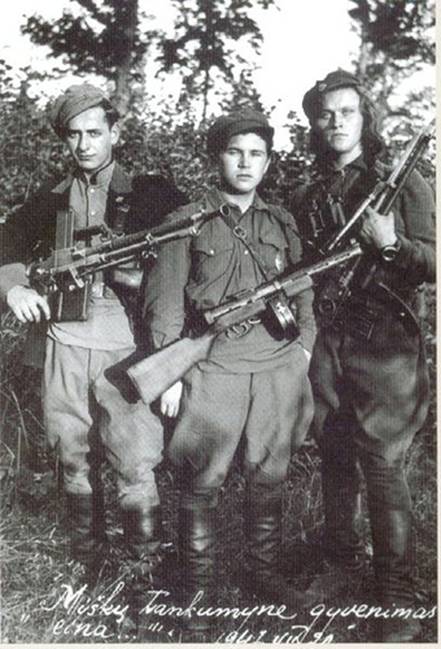
Lithuanian ‘forest brothers’ from the so-called "Vytis" military district.
Text: Aage Myhre, VilNews Editor-in-Chief
Tell a Lithuanian that his country was liberated and peace after WWII was restored on the 9th of May 1945, as the Russians claim. Tell him that this 2011 May it is 66 years since the Soviet Union and the Western world defeated Hitler's Nazi regime, and that Lithuania since then has been a free, happy country in line with what other European countries experienced after they were occupied in 1939 – 1940 and liberated in 1945. Do not be surprised if you get an angry and annoyed look back. For while we in the Western world, in Russia and in other parts of the world joyfully could celebrate the liberation and the recovered freedom after the World War, Lithuania, the other two Baltic states, and Ukraine were forced to realize that one war had been replaced by a new, much bloodier and more protracted war, lasting from 1944 to at least 1953. What we in the west celebrated in May 1945 was by Lithuanians and the other occupied countries experienced only in 1990 –1991.
- Bookmark :
- Digg
- del.icio.us
- Stumbleupon
- Redit it
- Posted by - (11) Comment
The longest and bloodiest
partisan war in modern Europe
LITHUANIA, LATVIA & ESTONIA 1944 – 1953
Text: Aage Myhre, VilNews Editor-in-Chief
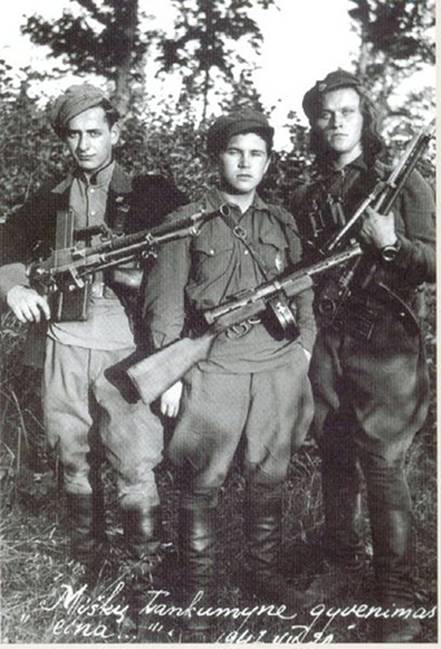
Lithuanian 'forest brothers' from the so-called "Vytis" military district.
Pictures: Mostly from the KGB Museum in Vilnius
Tell a Lithuanian that his country was liberated and that peace after WWII was restored on the 9th of May 1945, as the Russians claim. Tell him that this May 2011 it is 66 years since the Soviet Union and the Western world defeated Hitler's Nazi regime, and that Lithuania since then has been a free, happy country in line with what other European countries experienced after they were occupied in 1939 – 1940 and liberated in 1945. Do not be surprised if you get an angry and annoyed look back. For while we in the Western world, in Russia and in other parts of the world joyfully could celebrate the liberation and the recovered freedom after the World War, Lithuania, the other two Baltic states, and Ukraine were forced to realize that one war had been replaced by a new, much bloodier and more protracted war, lasting from 1944 to at least 1953. What we in the west celebrated in May 1945 was by Lithuanians and the other occupied countries experienced only in 1990 –1991.

The end of World War II saw a Germany dramatically reduced in size. Before long it was also divided into East and West. Germany's defeat meant that Poland and Czechoslovakia returned to the map of Europe after a six-year absence. But not so for Estonia, Latvia, Lithuania, Ukraine and northern East Prussia (Kaliningrad) that all remained occupied by the USSR.
Western radio stations told us, who were lucky enough to grow up on the western side of the iron curtain, thoroughly about the Hungarian uprising against the Soviet intervention in 1956, an uprising that resulted in 2,500 Hungarians and 700 Soviet soldiers losing their lives.
Western television stations showed us in detail what happened when Czechoslovakia was invaded in 1968 by more than 200,000 troops from the Warsaw Pact countries Soviet Union, Poland, East Germany, Hungary and Bulgaria - with the outcome that 72 Czechs and Slovaks were killed when they tried to resist.
However, we got almost nothing to know about the many, many times bloodier uprising against the Soviet that was happening right outside our own front door, in the Baltic States, through nine long years from 1944 to 1953.
It is estimated that approximately 30,000 Balts and 100,000 Soviet soldiers died in this bloody guerrilla war when Estonians, Latvians and Lithuanians withdrew into the woods to organize its powerful armed partisan resistance after the Soviet Union at the end of the second World War, in 1944, pushed the German forces out, and Stalin decided to incorporate the Baltic States into his powerful autocracy instead of giving these countries their freedom and independence back. Today we know that this tragic, involuntary occupation and oppression was to last the whole 47 years, from 1944 to 1991.

Entering a Siberian Gulag (leaf from Eufrosinia Kersnovskaya's notebook). During the period 1940 – 1953 Stalin’s Soviet deported approximately 600,000 individuals from the Baltic States to Siberia. Around 100,000 of them never returned to their homelands.
In addition to the 30,000 Balts who died in direct combats with the Red Army during this nine-year guerrilla war, comes all those who died in or on their way to Siberia, all because of their resistance to the Soviet raids home in the Baltics. It is considered that Josef Stalin was responsible for the deportation of not less than 600,000 Baltic people to the permafrost concentration camps and the gulag prisons during these years, and that probably as many as 100,000 of them died during the stay or during the three-month journey where they were stuffed into icy cold, miserable cattle wagons with thin straw mats as mattresses, and very limited food rations to survive on during the long way to the cold hell, thousands of kilometres north and east.
We speak, in other words, about an almost unimaginable and too little known purges of totally 130,000 people from the Baltic States during the very first years after the Second World War. But let us not forget that also the approximately 100,000 Soviet soldiers who died were victims of the same madness that almost a quarter million people were exposed to by an inhuman despot, still by many is regarded as a hero in Russia, Georgia and other former Soviet republics. The despot Adolf Hitler almost pales in comparison.
In comparison, 58,000 Americans died during the Vietnam War in the years 1960-75, and we were all fed with regular updates on how the war evolved, almost minute by minute.
The distance between the free, western country of Sweden and Lithuania is less than 300 kilometres, shorter than the distance between Vilnius and Klaipeda. But despite the short distance, there was remarkable little information that reached the West about the tragic carnage that took place so close to our own front doors after the war.
We probably had enough to lick our wounds after five years of occupation and the World War II. Even today there are very few people who know much about the bloody Baltic guerrilla war. This is, for example all my Norwegian Encyclopaedia gives of information:
"The armed resistance against the Soviet regime took the form of guerrilla groups in the forests (forest brothers) and had a large scope. Only in 1953 the armed resistance ebbed out. "

Lithuania’s WWII: Torn apart by two super powers.

Many of the partisans were young men returning to Lithuania from the West after WWII to fight for their beloved home country. Here are three of them, with their official and nick names: K. Sirvys - "Sakalas", J. Luksa - "Skirmantas", B. Trumpys - "Rytis". Very few ‘Western partisans’ returned to the West. Almost all of them were killed by the Soviets.
Partisans, or "forest brothers" as they called themselves, were found in all three Baltic countries, but it was in Lithuania that the major groupings were found. It was also here that the really huge death tolls came. It is considered that 22,000 partisans and 70,000 soldiers from the Red Army and NKVD were killed in Lithuania alone, this in addition to the approximately 60,000 Lithuanians who died in Siberia during the early post war years.
The Lithuanian partisans usually appeared in uniforms, with national insignias and identification of rank as like other nations' armies. It is said that the Lithuanian soldiers always saved the last bullet for themselves; they knew all too well that torture, a symbolic trial and execution by hanging, head shot or group execution awaited them if they were captured.
The post war Guerrilla War in Lithuania is normally divided into three different phases:
- The first phase lasted from July 1944 to May 1946, with violent skirmishes and casualties on both sides. More than 10,000 forest brothers lost their lives in battles and skirmishes during these two years. Partisans captured during this period small towns from the Soviet forces, local quisling units were disarmed and the occupants’ offices were destroyed. But the big losses meant that tactics had to be changed.
- The second phase lasted from May 1946 until November 1948. The Lithuanian units were then divided into smaller groups that hid in well-camouflaged bunkers. During this period a joint command was established for all Lithuanian forces fighting against the occupying army. Contacts were also made contacts with the West in this period, but no help arrived.
- The final phase lasted until May 1953. And despite the brutal oppression and forced collectivization, around 2,000 partisans were still active with their armed resistance against the occupation. During this period, they also worked extensively with informing the Lithuanian people by publishing newspapers, books and leaflets. Circulation varied from a few hundred to 5,000. Such publications lasted until 1959.
There were also parallel battles against Soviet forces in Estonia and in Latvia, but in much smaller scale. Only in Western Ukraine, there was fighting in the same scale as in Lithuania.

The Forest Brothers often used cellars, tunnels or more complex underground bunkers as their hideouts, such as the one depicted here.
The Baltic Partisan War came mostly to an end by May 1953, two months after Joseph Stalin died. But the last active resistance man in Lithuania shot himself, rather than surrender, as late as 1965, and the last partisan did not come out from his hiding place before 1986, 42 years after the guerrilla war in the Baltics started.
In 1955, the Soviet-controlled 'Radio Vilnius’ offered amnesty to all the partisans who were still hiding in Lithuania's deep forests, and in 1956 the KGB repeated a similar provision. Such amnesty-deals were of course meant only to lure the last forest brothers, so when the famous partisan leader 'Hawk' was taken that the same year, he was immediately given a symbolic trial and executed. Hawk was an American-born Lithuanian who had returned to his home country to fight the Soviet occupation.
Instead of giving themselves over to the Soviet occupiers, many chose to commit suicide, often by exploding a grenade right in their own faces in order to destroy them so much that they would not be identifiable and thereby create a risk to their relatives' lives. Such suicides occurred until around 1960. Many also managed to obtain false identity and get back into society without being detected.
Many of the Soviet Union's atrocities against the Baltic States have only come to light in earnest after 1991 when these countries regained their freedom and independence. A large part of the archives that mentioned the said matters were, however, brought to Moscow to prevent the World from having access to these highly revealing documents.
But, strangely, in 1994 a former KGB officer decided to go to the Lithuanian authorities with detailed information about how torture and executions had taken place at the KGB headquarters in the Vilnius city centre. He told that there had been secret burials for the victims, just on the outskirts of Vilnius. When the huge mass grave he had told about was found and opened, several hundred corpses of partisans were discovered, all in Lithuanian uniforms, and all obviously tortured to death.
One can ask whether it was a fatal mistake for a small country like Lithuania to so aggressively a predominance they had to understand they would not be able to defeat. Admittedly, there is a general perception that Lithuania thereby was avoiding most of the ‘russification’ that Stalin and later leaders implemented in all other Soviet republics. The Russians were simply too afraid of the Lithuanians as a result of the strong opposition during the post-war years, hence the proportion of Russians in Lithuania today represents only 6% of the population, compared to more than 30% in Latvia and around 25% in Estonia.
But the bloodshed in the Baltics, and the incredibly extensive deportations to Siberia, as a result of the partisan opposition, made that these three countries lost too many of their best men and women. The hero status they may have achieved around the world never became significantly large. We in the West did not know what really happened, and when we finally learned, far too many decades have passed to achieve a proper attention for the heroes, the very guerrilla war, the deportations and the unbelievable sufferings the Baltic people underwent on the Siberian permafrost during the 1940s and 1950s.
Lithuania, Latvia and Estonia have paid an extremely high price for their rebellion behaviours, and are unlikely ever to receive the honour and the redress they deserve for their courage to fight the injustice they were subjected to during the ruthless Soviet period.
When World War II ended, the West chose to forget Lithuania

The historic meeting near the end of World War II, the Yalta Conference, became fatal for Lithuania. It involved three key allied leaders. Left to right: Winston Churchill, Prime Minister of the United Kingdom; Franklin D. Roosevelt, President of the United States; and Joseph Stalin, Premier of the Soviet Union.
For several years after World War the Balts believed that the U.S. and other Allied powers would come to their rescue and help to free them from the Soviet occupation. This was fatal.
The partisan leaders were familiar with the Atlantic Charter, which was signed by Churchill and Roosevelt 12 August 1941 aboard the U.S. cruiser Augusta in Newfoundland, a charter later acceded to on 1 January 1942 by all countries involved in the war against Germany and Japan - including the Soviet Union. This declaration stated that all territorial changes resulting from the war would only take place after the population's own desires, and that any people should have the right freely to choose their form of government.
What the Baltic people did not know, was that their case head was not at all discussed when the British Prime Minister, Winston Churchill, the U.S. President Franklin D. Roosevelt and the Soviet leader Josef Stalin in February 1945 met in the city of Yalta on the Black Sea to lay the conditions for peace and the post-war period. The Baltic States were totally forgotten; but they did not know about it, and therefore continued the impossible fight against the evil superior force until 1953.
It has been speculated that Roosevelt's failing health may have been the reason why Stalin so easily got the upper hand at the Yalta Conference. The outcome was, in any case, very tragic for the Baltic States, and only in 2005 the American president, George W. Bush came here to apologise on behalf of the United States. Russia’s President, Vladimir Putin, was also asked to apologise for the atrocities against the Baltic States in the years after Yalta. But Russia still considers that they 'liberated' the Baltics and sees no reason to excuse themselves. It went even so far that Putin declared Lithuania's President Valdas Adamkus 'persona non grata' after the latter refused to come to Moscow to participate in Russia’s anniversary celebration of the Soviet victory over Nazi Germany on 9 May 2005.
In the years after WWII a number of Lithuanian agents were amazingly capable of getting in and out of the country several times, and in December 1947 a full delegation travelled to Western Europe to present their case to the Pope and to Western governments. But no countries or leaders dared go into conflict with Stalin's Soviet Union, and Lithuanians call for help was largely met with deaf ears.
Though not quite. Both U.S. and UK intelligence agencies gave their orders to see what might be done to create secret anti-communist organizations and operations behind the Iron Curtain. They also helped to organise the radio stations 'Radio Liberty' and 'Radio Free Europe', which for many years thereafter conveyed useful information to the Baltics. In 1951 came the 'Voice of America' on air, and thus gave hundreds of thousands of Baltic war refugees in the United States a voice back to their home countries at the Baltic Sea.
Unfortunately, the success of the Western intelligence services and their 'relief efforts' very much failed, which in retrospect largely is attributed to the British intelligence officer Kim Philby, the man who in reality was a Soviet spy who unfortunately contributed so actively to the killing of tens of thousands of Baltic people.
The intelligence organizations' attempts to help the Baltic States irritated Stalin violently, and he therefore imposed increasingly tough measures against the uprisings. His NKVD (later renamed the KGB) had more or less free hands to exercise extensive torture against individuals and groups believed being in league with the partisans. Vague suspicions were enough to allow use of cruel torture methods. Many were hanged or shot without any real form of litigation. A huge number of relatives and family members of the partisans were sent to slave labour camps in Siberia. All private farms were incorporated into collective farms to prevent them from continuing to provide food to the partisans, and many farmers were deported to Siberia. The West's attempts to help got quite the reverse effect. Tyranny had triumphed, and our close neighbours on the Baltic Sea's south coast were once again suffering in a most cruel way.

One of the many killed Lithuanian partisans,
Juozas Luksa – "Skirmantas", "Daumantas",
after his death on the 4th of September 1951.
Photo: KGB
Few in the West know that Lithuania 500 years ago was considered Europe's largest country, stretching from the Baltic to the Black Sea. Few in our today's West know the proud and honourable cultural history of the Baltic countries, or that these countries were economically fully on par with Scandinavia until World War II, and few know about the heroic guerrilla war these three nations fought against the mighty Soviet Union after WWII.
During five world war years, the Baltic area became the incredibly bloody and sad battlefield where Stalin and Hitler pushed each other back and forth, with fatal and almost incomprehensible destruction and murders of hundreds of thousands innocent people as result. It was here that the Holocaust saw its very worst outcome on Earth, when 95% of the large Jewish population of Lithuania was exterminated. It was here that Europe's longest and bloodiest guerrilla war and the ensuing mass deportations to Siberia took place through more than a decade during and after WWII.
Hundreds of thousands of our closest neighbours died just outside our own front door (or were deported to the gulag camps in the permafrost of Siberia). These terrible things happened only 300 kilometres away from Lithuania’s closest Western coast, at the same time as we westerners celebrated our new freedom and the beginning of the new era we today know as the proud, free Western World.
Didn’t we in the West know, or did we prefer not to know?
- Bookmark :
- Digg
- del.icio.us
- Stumbleupon
- Redit it
- Posted by - (2) Comment
This train engine towed cattle cars filled with thousands of innocent deportees to Siberia

A Monument to the Empire, silver bromide print by Juozas Kazlauskas, 1989 (copyright Dalia Kazlauskiene). This train engine towed cattle cars filled with thousands of innocent deportees from Lithuania, and other Eastern European countries, until 1953, when Stalin died. Kazlauskas was one of the first people to visit deportation sites and photo-document them. When he started exhibiting these images, the Soviet (later Russian) government, out of embarrassment, cleaned many of these sites up, so they no longer exist. Nevertheless, these governments never brought anyone to account for the 20 million genocidal murders that were committed by Stalin and his henchmen.
Courtesy: Val Samonis
- Bookmark :
- Digg
- del.icio.us
- Stumbleupon
- Redit it
- Posted by - (0) Comment
Where are the kids
places in Vilnius?
By Gene Emmer
Any parent living in Vilnius, particularly near the center understands one of the biggest problems living in the city. What to do with the kids in the winter?
Yes, there are a few children's gyms at the big shopping malls. But except for that, when the snow comes and the sun leaves, there is very little for kids to do in the center of the city. Why is Vilnius so children-unfriendly?
When our son was an infant, we struggled to find restaurants with baby high chairs. Very few bother to have them. Changing tables in the toilets? Forget it. This is standard in many parts of the world yet practically non-existent in Vilnius. I would have to take a towel with me and put him in the sink to change his diapers. As he grew up, we struggled to find places where we were comfortable if he cried. Now that he is a bit older, we struggle to find restaurants with kid friendly menus offering foods such as pizza, French fries, sausages, etc. The only central restaurant we are aware of that offers a kid playing area and changing tables is Kibininn http://pinavija.lt/
In other countries children friendly restaurants are big business. Chuck E Cheese (http://www.chuckecheese.com/) is a popular international Pizza and Entertainment chain, with over 500 locations. On their website they write “Chuck E. Cheese’s is the ultimate place Where A Kid Can Be A Kid®. And parents can enjoy every moment.” Chuck E Cheese has an amusement park-like atmosphere with food, drinks, games, singing robotic animals and fun, fun, fun.
- Bookmark :
- Digg
- del.icio.us
- Stumbleupon
- Redit it
- Posted by - (1) Comment
Where are the kids
places in Vilnius?

By Gene Emmer
Any parent living in Vilnius, particularly near the center understands one of the biggest problems living in the city. What to do with the kids in the winter?
Yes, there are a few children's gyms at the big shopping malls. But except for that, when the snow comes and the sun leaves, there is very little for kids to do in the center of the city. Why is Vilnius so children-unfriendly?
When our son was an infant, we struggled to find restaurants with baby high chairs. Very few bother to have them. Changing tables in the toilets? Forget it. This is standard in many parts of the world yet practically non-existent in Vilnius. I would have to take a towel with me and put him in the sink to change his diapers. As he grew up, we struggled to find places where we were comfortable if he cried. Now that he is a bit older, we struggle to find restaurants with kid friendly menus offering foods such as pizza, French fries, sausages, etc. The only central restaurant we are aware of that offers a kid playing area and changing tables is Kibininn http://pinavija.lt/
In other countries children friendly restaurants are big business. Chuck E Cheese (http://www.chuckecheese.com/) is a popular international Pizza and Entertainment chain, with over 500 locations. On their website they write “Chuck E. Cheese’s is the ultimate place Where A Kid Can Be A Kid®. And parents can enjoy every moment.” Chuck E Cheese has an amusement park-like atmosphere with food, drinks, games, singing robotic animals and fun, fun, fun.
Targeting the entire family with food and fun is Dave and Busters (http://www.daveandbusters.com/).
I do not expect to see a Chuck E Cheeses opening soon in Vilnius. But their success elsewhere does show that there is a market for restaurants which cater to children and families. Yet, restaurants in Vilnius seem to discourage this market by, first, not even offering the basic infrastructure, like baby chairs and changing tables, let alone play areas. This is amazing in a climate where outdoor activities are limited 6 months out of the year.
It would not take much for a restaurant with some extra space to significantly increase their income by offering a "kid friendly" area. All that is needed is a separate place for kids to play, some toys, simple food and patient serving staff. The parents would eat, drink and chat while the kids play safely nearby. The family would be delighted to have a place to go when it is cold and outside, which is half of the year in Lithuania.
- Bookmark :
- Digg
- del.icio.us
- Stumbleupon
- Redit it
- Posted by - (0) Comment
Eastern Europe's
watchdog in the U.S.
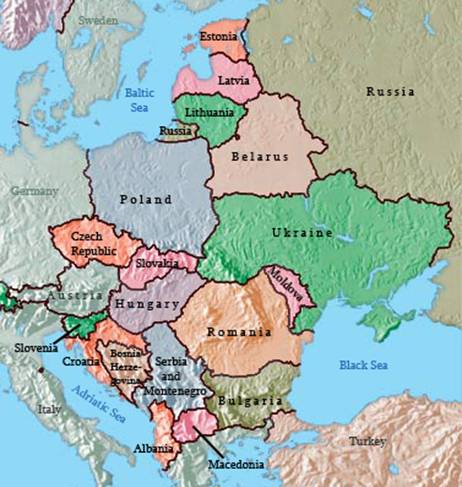
A constantly relevant focus of CEEC is Russia's increased use of
"soft power" against Lithuania and the other 17 countries that
constitute Central and Eastern Europe.
Member of our VilNews Honorary Council and regular contributor as a columnist, Dr. Stan Backaitis, is also a member of the Central and East European Coalition (CEEC), Eastern Europe's watchdog in the United States. A constantly relevant focus of this organization is Russia's increased use of "soft power" against Lithuania and the other 17 countries that constitute CEE. Dr. Backaitis today has made us aware of a new U.S. law in the country's relations with Russia. The new law grants Russia and Moldova permanent normal trade relations, but it is coupled with the Sergei Magnitsky Rule of Law Accountability Act, which honors a dead Russian. The law blacklists Russians connected to the death of Magnitsky in police custody and to other gross human rights violations, prohibiting entrance to the United States and use of its banking system.
See also:
Russia can turn the lights out on Lithuania any time it pleases
- Bookmark :
- Digg
- del.icio.us
- Stumbleupon
- Redit it
- Posted by - (0) Comment
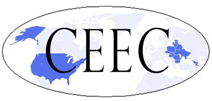
Eastern Europe's
watchdog in the U.S.

A constantly relevant focus of CEEC is Russia's increased use of "soft power" against
Lithuania and the other 17 countries that constitute Central and Eastern Europe.
Member of our VilNews Honorary Council and regular contributor as a columnist, Dr. Stan Backaitis, is also a member of the Central and East European Coalition (CEEC), Eastern Europe's watchdog in the United States. A constantly relevant focus of this organization is Russia's increased use of "soft power" against Lithuania and the other 17 countries that constitute CEE. Dr. Backaitis today has made us aware of a new U.S. law in the country's relations with Russia. The new law grants Russia and Moldova permanent normal trade relations, but it is coupled with the Sergei Magnitsky Rule of Law Accountability Act, which honors a dead Russian. The law blacklists Russians connected to the death of Magnitsky in police custody and to other gross human rights violations, prohibiting entrance to the United States and use of its banking system.
The Central and East European Coalition (CEEC) was established in 1994 and is comprised of 18 national membership organizations that represent more than 22 million Americans who trace their heritage to the countries of Central and Eastern Europe (CEE). CEEC represents Americans of Armenian, Belarusan, Bulgarian, Czech, Estonian, Georgian, Hungarian, Latvian, Lithuanian, Polish, Romanian, Slovak, and Ukrainian descent.
The CEEC has been regularly consulted by U.S. authorities over the years on a variety of issues, such as NATO enlargement, U.S. assistance to Central and Eastern Europe, Bosnia, Kosovo, the Comprehensive Nuclear Test Ban Treaty, missile defense, and other key issues of national concern. Our member organizations regularly meet individually and as a Coalition, with high-level officials at the White House, State Department, and members of Congress.
The latest, growing tense situation between Russia and its neighbors has caused increased alarm for CEEC as Moscow’s increasingly belligerent rhetoric, internal violations of human rights, economic coercion, and increasing use of soft power to further its aims, have gone largely unheeded in American foreign policy.
CEEC has the latest years also focused much on energy issues, that have emerged as one of Europe’s most serious long-term security challenges, with the Kremlin using its energy resources for political and economic pressure in the CEE region.
- Bookmark :
- Digg
- del.icio.us
- Stumbleupon
- Redit it
- Posted by - (0) Comment
- Bookmark :
- Digg
- del.icio.us
- Stumbleupon
- Redit it
- Posted by - (0) Comment
Kitron to invest in Kaunas
instead of China, Norway
One of the leading electronics manufacturing services suppliers in Scandinavia – Kitron – will expand its manufacturing facility in Lithuanian city Kaunas, and invest almost six million euros into this project, the Invest in Lithuania reports now in November.
The expansion strategy of the Norwegian company in Lithuania encompasses an increase in its production capacity, the creation of 60 new job openings and an improvement to the company's revenue by 40%, writes LETA/ELTA.
In Kaunas, Kitron already produces electronic control systems for high-speed rail vehicles and electric grass mowers, electronic circuits for ultrasound devices, scientific equipment for seabed research, mobile blood test devices, smart grid/automatic meter reading systems and other electronic equipment.
"To win this expansion project, Lithuania competed with the US, Norway and China, all of which are well-known to Norwegian investors as countries where they have already established manufacturing facilities. Our country [Lithuania] was chosen because of its convenient location for logistics, the low costs of labor, and the resources to ensure production quality. Since the Norwegian company also supplies its goods to the defense and medical equipment industries, qualitative criteria were important to the decision on location," said the Managing Director of Kitron Lithuania, Mindaugas Sestokas.
- Bookmark :
- Digg
- del.icio.us
- Stumbleupon
- Redit it
- Posted by - (0) Comment
Electric cars made
in Lithuania!
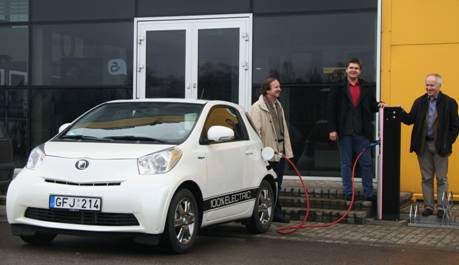
Kaunas electronics manufacturer ELINTA has come a long way in developing a new electric car here in Kaunas. These three gentlemen
are behind the success: Dr. Vytautas Jokužis, Laurynas Jokužis
and Dr. Vladas Lašas.
Elinta is a company that combines electronic with intellect. The company was established in 1991, as a research and production firm. From the start the company’s main hall mark was A highly skilled team, high quality goods and services. The business strategy, based on designing high-tech and consumer-friendly automated control systems, allowed the company to develop fast and surpass its competitors.
- Bookmark :
- Digg
- del.icio.us
- Stumbleupon
- Redit it
- Posted by - (0) Comment
Looking for a hotel in Kaunas?
Try ‘House of Thunder’
(Perkūno Namai)
To read more reviews and book rooms in this or other
Kaunas hotels, go to VilNews Section 22
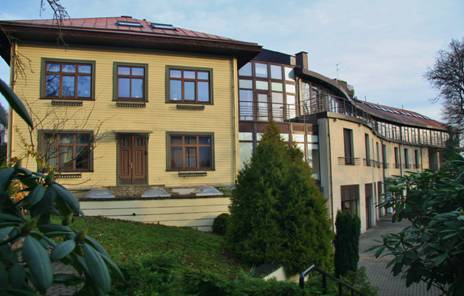
My preferred hotel in Kaunas. The family owned Hotel Perkūno Namai is beautifully located on a hilltop just outside Kaunas centre, surrounded by an amazingly attractive garden. The house to the left in the picture was built for the family in the 1930s. Perkūno Namai means House of Thunder.
Text and photos: Aage Myhre
Surrounded by centennial oaks Perkūno Namai just outside Kaunas centre has been a family owned and run hotel for 18 years, since 1994. The hotel also includes a high class international restaurant.
The hotel family has its long time roots from up here in Žaliakalnis – the Green Hill – where the site belonged to the present owners grand and great-grandparents. The family house adjoining the hotel was designed in 1930 by a family friend architect, a promoter of functionalism in Lithuania, Vytautas Landsbergis-Žemkalnis (father of today’s famous music professor and politician, Vytautas Landsbergis).
“We are very proud of the hotel’s well-groomed landscape: a rhododendron grove and an oak-tree hillock invigorate our guests, family members and staff all year round,” tells today’s director and co-owner Vidimantas Žekas when I sit down with him for a talk.
- Bookmark :
- Digg
- del.icio.us
- Stumbleupon
- Redit it
- Posted by - (1) Comment
Looking for a hotel in Kaunas?
Try ‘House of Thunder’
(Perkūno Namai)
To read more reviews and book a room in this or other
Kaunas hotels, go to Booking.com on top of this page

My preferred hotel in Kaunas. The family owned Hotel Perkūno Namai is beautifully located on a hilltop just outside Kaunas centre, surrounded by an amazingly attractive garden. The house to the left in the picture was built for the family in the 1930s. Perkūno Namai means House of Thunder.
Text and photos: Aage Myhre
Surrounded by centennial oaks Perkūno Namai just outside Kaunas centre has been a family owned and run hotel for 18 years, since 1994. The hotel also includes a high class international restaurant.
The hotel family has its long time roots from up here in Žaliakalnis – the Green Hill – where the site belonged to the present owners grand and great-grandparents. The family house adjoining the hotel was designed in 1930 by a family friend architect, a promoter of functionalism in Lithuania, Vytautas Landsbergis-Žemkalnis (father of today’s famous music professor and politician, Vytautas Landsbergis).
“We are very proud of the hotel’s well-groomed landscape: a rhododendron grove and an oak-tree hillock invigorate our guests, family members and staff all year round,” tells today’s director and co-owner Vidimantas Žekas when I sit down with him for a talk.
“Our 50-seat restaurant offers creative and stylish cuisine and a quiet atmosphere. My sister Ingrida and I normally welcome our guests personally, treating them to a cup of coffee. We receive our guests as family members and some repeated visitors have become our family friends.”
Mr. Žekas has great pride in his hotel, telling me what one of his recent guests told: “I like this place because once you pass the gate you enter a totally different world under the oak-trees with birds singing above romantic benches surrounded by flowers. It is an Italian court-yard in the middle of Kaunas, a welcoming retreat from the world’s turmoil.”
The hotel includes 29 rooms: 2 deluxe rooms, 6 junior suites, 11 single rooms, and 10 double rooms (with twin beds or a double-bed). All rooms meet international first-class hotel standards. Here you will find everything you need for rest and work: TV sets, direct-dial telephones, mini bars, safe deposit boxes, free wireless internet connection, hair dryers and comfortable en suite bathrooms with heated anti-slip floor. Should you prefer a comfy king size bed, just order it in advance and you will find it ready upon arrival.
Perkūno Namai images
Photos: Aage Myhre



- Bookmark :
- Digg
- del.icio.us
- Stumbleupon
- Redit it
- Posted by - (0) Comment
|
Crave: An opera without music A chamber opera for four voices at Vilnius Chamber Theatre Saturday 24 November at 19:00 |
|
|
November 24, 2012 at 7:00PM the Vilnius Chamber Theatre will present an evening of British contemporary theatre performed by the actors of Baram Theatre Company - an international theatre company based in the UK and directed by VKT’s artistic director Alicia Gian (USA). Gian’s production of Crave, written by British playwright Sarah Kane, has been conceptualized as “An Opera Without Music” and will be showing for one night only in the capital before it begins touring in theatres throughout the UK in January of 2013. The production was developed in the Spring of 2012 in Exeter, UK by Gian and the actors of Baram Theatre Company who have all previously trained in a psychophysical actor training methodology which combines Asian body/mind training practices - yoga, Indian martial arts, and Tai chi to prepare the actor for score-based performances in which actors respond to images that arise from the dramatic material.

Alicia
Gian
“I hate these words that keep me alive, I hate
these words that won’t let me die...”
-Crave
Sarah Kane (1971-1999) was a young, dynamic, and controversial playwright, whose words were immortalized when she committed suicide at the age of 28. During the 1990’s, when drama in the UK was shifting away from the conventions of naturalist theatre, Kane emerged as the quintessential In-Yer-Face British drama playwright, creating provocative dramatic material that required the audience to look up close at issues that generate discomfort. She created an experiential theatre of sensation which challenges the distinctions that define who we are: right/wrong, animal/human, good/evil, art/life, normal/abnormal - binary oppositions that are central to our world view. Her first three plays: Phaedra’s Love, Blasted, and Cleansed were marked by considerable on-stage violence, but her fourth play Crave, written under the pen name Marie Kelvedon (Marie her middle name and Kelvedon the town where she was raised) so that the piece would not be tainted by the playwright’s notorious reputation nor by the fact that she considered the play unfinished at the time of performance (it remained unfinished), was the beginning of her experimentation with a freer, fragmented, and more lyrical form of writing which characterizes the last two and most personal of her plays: Crave and Psychosis 4:48. Kane wrote Crave, which is considered to be one of the more complex plays of the 1990’s, when she had “lost her faith” in love. The themes and images of damaged lives are explored through the fragmented inner journeys of four characters A, B, C and M - four disintegrating minds under the pressures of love, loss and desire.
“I don’t have music, Christ I wish I had music but all I have is words...” - Crave
Gian, the play’s director and a classically trained singer, explains how she structurally approached the fragmented and non-linear text: “Kane offers no setting, no stage directions and no indication of actions in the play and considered it an experiment with the rhythm and musicality of language; therefore we worked with the text as if it were an opera score comprised of arias and oratorios - a chamber opera for four voices. Sections of the text were divided according to recurring themes and motifs, but instead of singing with the voice, the actors “sung” with their bodies by developing movement scores activated by images that arose organically from the text and developed in rehearsal. The actors trained in operatic breathing techniques for four weeks before any staging of the text began. The goal was to learn to breathe together and allow the breath - just as it does in singing - to sculpt the shape of the thought through movement and text.”
“I keep coming back...again and again...the eternal return...” - Crave
Crave is considered to be Kane’s most personal text and also an ambitious attempt at recasting theatrical form. It is permeated with allusions from the Bible as well as Shakespeare and T.S. Elliot’s “The Wasteland”, but Gian and the actors of Baram primarily explored the text through the Buddhist concept of Tanhā - translated as a craving or thirst and is comprised of three essential stages: the desire of having, the desire of becoming, and the desire of escaping. “As we studied the text we identified each character’s fluxuations between these three stages of desire as described in Buddhist philosophy. This allowed the actors to chart the course of their character’s spiritual journey amongst the fragmented and harsh terrain of the text.”
Gian and Baram Theatre are currently staging Sarah Kane’s other one act play, Psychosis 4:48, which is planned to premiere alongside Crave in the Summer of 2013 in the UK.
Tickets are available through Bilietai.lt and at the door.
Doors open at 6:30 to the public
After the show the audience is invited to stay for a glass of wine to meet the actors and discuss the performance.
Vilnius Chamber Theatre is located at 23 Konstitucijos Prospect - directly across the street from the National Art Gallery.
For more information please visit: www.vkamerinisteatras.lt
- Bookmark :
- Digg
- del.icio.us
- Stumbleupon
- Redit it
- Posted by - (0) Comment
This week in politics
 |
New parliament sworn in Lithuania's new Seimas (parliament), elected last month, assembled for its first sitting on Friday 16 November. Read more… |
 |
The President did not show up All previous presidents always personally welcomed new deputies of the Seimas at their first session. Read more… |
 |
But the ex-President did Former Lithuanian President Valdas Adamkus says he is hopeful about the country's new Seimas. Read more… |
 |
Court adjourns hearing Vilnius Regional Court was this week scheduled to hear the Labour Party's fraudulent bookkeeping case, but… Read more… |
 |
New parliament speaker? Lithuania's Labour Party will propose Vydas Gedvilas for the post of parliamentary speaker. Read more… |
 |
President not yet ready President Dalia Grybauskaitė not yet ready to nominate Social Democratic Algirdas Butkevičius as new PM. Read more… |
 |
Uspaskich to leave Brussels The Labour Party's leader has decided to give up his mandate as a member of the European Parliament. Read more… |
 |
Polish party to head energy? Leader of the Electoral Action of Poles, Valdemar Tomaševski, remains secretive. Read more… |
- Bookmark :
- Digg
- del.icio.us
- Stumbleupon
- Redit it
- Posted by - (0) Comment
LITSHARES™
A strategy for global
financing of Lithuania’s
development
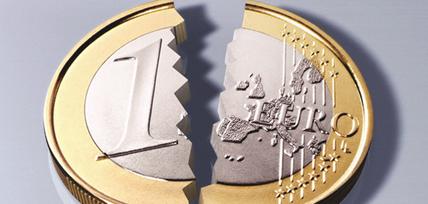
By Val Samonis
Given the dangerous European and global economic and strategic predicaments, Lithuania (LT) needs to adopt very bold and innovative ways to “sell” to the world its extreme austerity sacrifices during the continuing period of global Great (D)Recession and its earlier periods of bold systemic transformations as well. This proposal is a new strategy to globalize LT financial-economic ties (optimal global integration) so that the nation is no longer badly cornered and unduly dependent on the moribund European Union (EU) which is distracted and disoriented by the cacophony of austerity/profligacy controversies, and actually rewarding free riders by default. By now it is rather clear that Europe alone cannot properly reward the financial virtue and sacrifice of the LT people for the sake of the future (investment) which is the most distinguishing trait of a responsible nation and a mature leadership; hence the need for LT to go before the entire “global village”. Globalization can provide huge and underappreciated benefits for a nation like LT. Read more…
- Bookmark :
- Digg
- del.icio.us
- Stumbleupon
- Redit it
VilNews e-magazine is published in Vilnius, Lithuania. Editor-in-Chief: Mr. Aage Myhre. Inquires to the editors: editor@VilNews.com.
Code of Ethics: See Section 2 – about VilNews. VilNews is not responsible for content on external links/web pages.
HOW TO ADVERTISE IN VILNEWS.
All content is copyrighted © 2011. UAB ‘VilNews’.

 Click on the buttons to open and read each of VilNews' 18 sub-sections
Click on the buttons to open and read each of VilNews' 18 sub-sections 

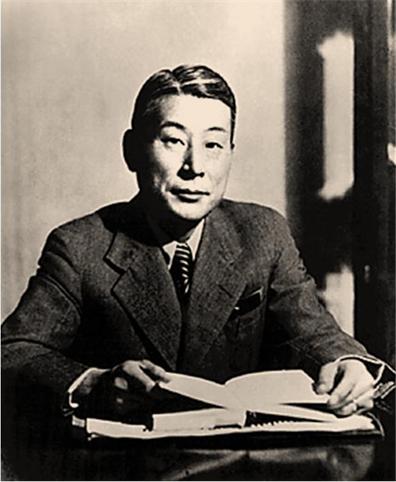






















.jpg)



